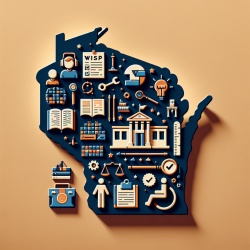Understanding Special Education Laws, Policies, and Practices in Wisconsin
Special education is designed to provide additional support to children with disabilities, ensuring they receive the education they deserve. In Wisconsin, there are specific laws and procedures in place to determine if a child is eligible for special education services. This blog aims to simplify these procedures for parents, school professionals, and others who may be involved in the special education process.
What is Special Education?
Special education is a tailored educational approach for children who have disabilities. It is essential for these children to receive an education that accommodates their unique needs. Schools must follow state and federal laws to determine a child's eligibility for special education. While these laws can be complex, understanding the basics can help parents and educators navigate the process more effectively.
Using the Special Education Guide
The guide on Wisconsin's special education laws is structured to provide clear information about the procedures involved. It includes a comprehensive chart with five columns:
- Topic: Identifies the main topic for easy reference.
- What the Law Says: Contains the exact legal language from state or federal laws.
- What the Law Means: Offers a plain language explanation of the law.
- What Needs To Be Done: Details the responsibilities of the school or IEP team.
- What Parents Need to Know or Do: Provides guidance for parents.
Who is a Child with a Disability?
A child with a disability is defined as someone who requires special education and related services. This can include children with:
- Intellectual disabilities
- Hearing impairments
- Speech or language impairments
- Visual impairments
- Emotional behavioral disabilities
- Orthopedic impairments
- Autism
- Traumatic brain injury
- Other health impairments
- Specific learning disabilities
- Significant developmental delay
Understanding the Language of Special Education
Special education comes with its own set of terms and abbreviations, which can be confusing. Here are a few key terms:
- IEP team: A group that includes school staff, parents, and others involved in creating an Individualized Education Program for the child.
- LEA: Local Education Agency, typically the school district.
- DPI: Wisconsin Department of Public Instruction, overseeing LEAs.
- FAPE: Free Appropriate Public Education, which must be provided to all children in special education.
Parental Involvement and Consent
Parents play a crucial role in the special education process. They must be informed and give consent for evaluations and placements. If a parent withdraws consent for special education services, the school must respect this decision and provide prior written notice before stopping services.
Procedural Safeguards
Both state and federal laws provide procedural safeguards to ensure parents and schools have clear rights and responsibilities. These include the right to an independent educational evaluation, access to educational records, and the ability to request mediation or a due process hearing if disagreements arise.
For more detailed information on special education laws and procedures in Wisconsin, please follow this link.










